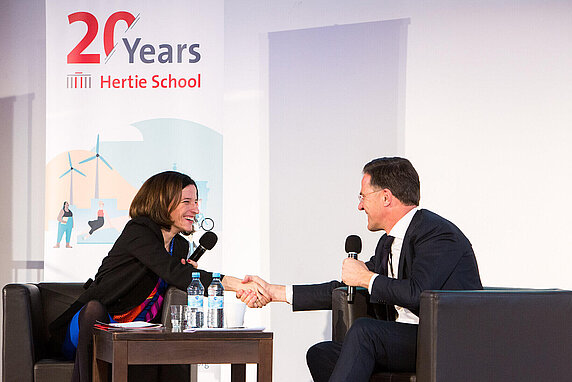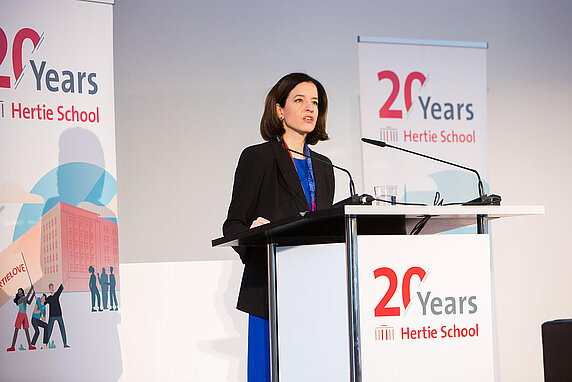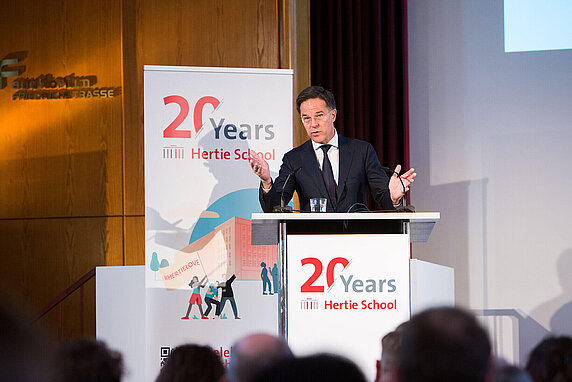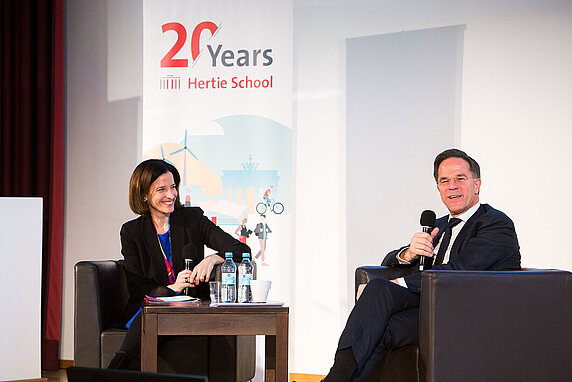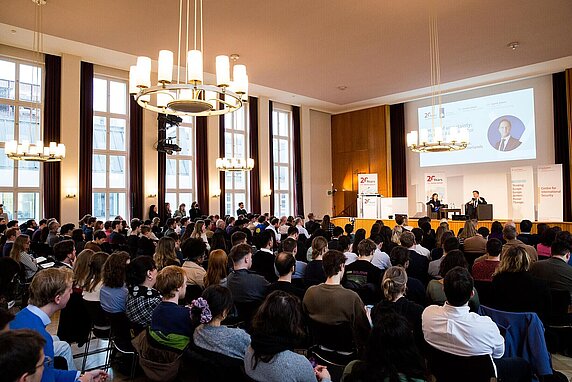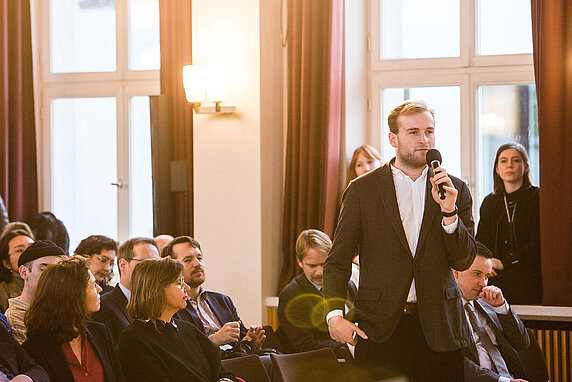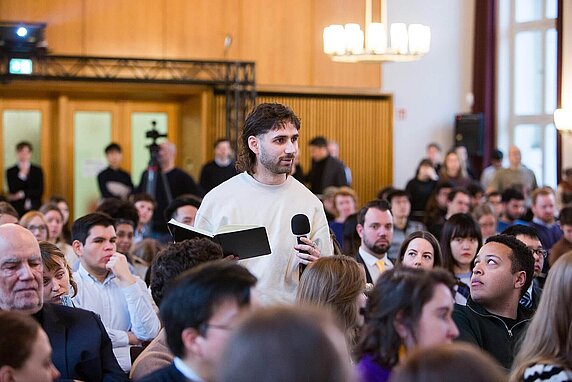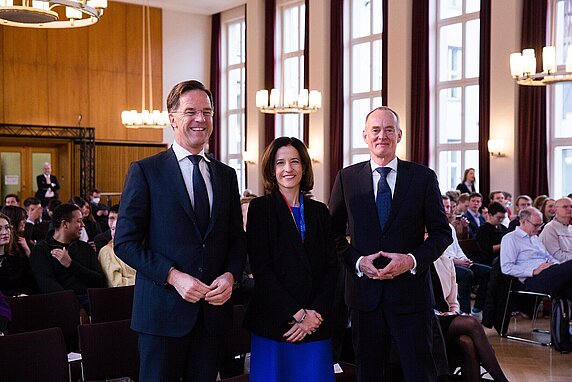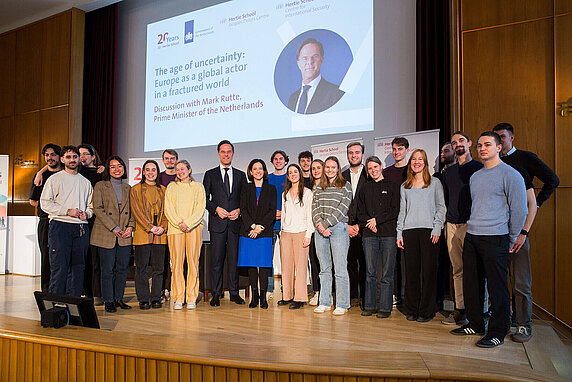As part of his visit to Berlin, Rutte spoke with students about the recent Dutch elections, European sovereignty and his time in leadership.
On 11 December 2023, the Hertie School in concert with its Jacques Delors Centre and Centre for International Security had the honour of welcoming Dutch Prime Minister Mark Rutte as part of his official visit to Germany for a public discussion. The event, introduced and moderated by Cornelia Woll, President of the Hertie School, began with a short speech by the Prime Minister, followed by a long Q&A session with the audience.
“There is only one solution to the big issues of our time, and that one solution is cooperation,” the Prime Minister claimed in his opening remarks, highlighting the importance of common EU action and multilateralism. In particular, Rutte focussed on collaborating on foreign policy issues, citing European cooperation on migration as a success story. “We can succeed if we work together,” he remarked, underlining the lessons learned from the migration crisis and advocating for cross-border agreements.
In addition, he highlighted the enduring values of peace, security and freedom that have bound Europe together since World War II, and he cautioned against taking these for granted. “We are united in the conviction that the price of peace and stability is always worth paying,” he stated.
EU cooperation, enlargement and qualified majority voting
Addressing questions about EU enlargement, the Prime Minister underscored the principle of “strict and fair”, emphasising a cautious approach with no shortcuts, in which decisions on enlargement are made based on fulfilment of the accession criteria. However, he expressed agreement with the European Commission’s decision for Ukraine and Moldova to progress on the path to accession, stressing that unanimity among EU member states will be crucial as the enlargement process continues.
At the same time, Rutte also called for letting go of some veto rights on foreign policy, stating, “Europe has to be a player, and it risks becoming the playing field.” In the case of the invasion of Ukraine, the EU was able to act quickly to enact sanctions and cooperate on foreign policy goals. Rutte highlighted the need for qualified majority voting in foreign policy to ensure that this capacity to act is maintained in the future. He emphasised the importance of foreign policy cooperation between France and Germany, whose agendas have the power to unite European foreign policy approaches. “Collectively we are bigger than the US, we are twice as big as China, and we are ten times as big as Russia,” yet alone, the EU cannot compete internationally, he stressed.
“You need radical politics in the centre”
Discussing the recent Dutch elections, the Prime Minister acknowledged the country’s inward focus during campaigns while also emphasising the continued importance of the European Union to the Netherlands. He made an optimistic prediction for the future, claiming that the Netherlands will remain at the heart of the EU even following the election results. However, the Prime Minister also acknowledged the danger of increasing polarisation, arguing that it is up to centrist parties to win back votes and counter extremism. “You need radical politics in the centre,” he claimed.
Advice to policy students and lessons learned
In a candid reflection on his political journey, the Prime Minister discussed his transition from the private sector to politics and praised the dedication of politicians and their abilities to effect change and address societal issues. When asked what advice he would give young political actors, the Prime Minister emphasised the importance of combining a clear vision while leaving room for compromise during political debates, also highlighting the need for early engagement with political debates to be able to influence their conclusions.
Watch the full recording of the event.

